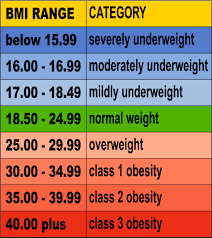
A healthy lifestyle includes a healthy diet. They can improve your overall health as well provide you with essential nutrients and micronutrients. They are good for your health and can help you avoid chronic diseases. High levels of fat, sugar, salt and cholesterol are harmful. Increasingly, global initiatives are focusing on improving food systems and influencing the choices people make in order to achieve sustainable healthy diets.
Food based dietary guidelines, also known as healthy food guides, advise consumers on how to consume a variety of foods. These guidelines aim to prevent chronic diseases such as heart disease, diabetes, and cancer. A healthy diet includes sufficient amounts of food energy and fluid, fibre, protein, and vitamins. It is essential to avoid unhealthy diets and eat nutritious foods.
Nutritional policies and programs are a key way in which governments can promote healthy diets. Some programs aim to integrate healthy diets into the safety net programs via cash-transfer or counseling. Some programs promote new varieties of crops and increase consumer awareness about nutrition. This article examines the main challenges and issues in promoting healthy diets for lower-income countries.

The highest rates of obesity and malnutrition are found in countries with lower incomes. Lack of access to healthy food may contribute to unhealthy diets. It is also possible that ignorance and preferences may be contributing factors to unhealthy diets. Moreover, food-based dietary guidelines that focus on nutrition can improve diet-related mortality rates.
The food pyramid is one of many graphic representations of healthy eating habits. The pyramid's purpose is to encourage healthy eating habits by allowing people to eat a wide variety of foods. The nutritional recommendations for adults are fairly similar, but the nutritional needs for children may differ.
Globally fruit and vegetable intakes are about 60% lower than the recommended intake. In Africa, for instance, fruit and vegetable consumption is about 59.5 percent below the recommended intake. Nevertheless, recommended levels of protein-rich food, such as meat and dairy, are maintained.
Healthy diets should be affordable for low income communities. To support this, policy measures must be put in place to help increase the amount of affordable and nutritious foods that are available in the market. Unfortunately, many people cannot afford to eat healthy meals.

According to a new report by the Commission on Sustainable Food Production in 2018, 12 million deaths could have been prevented due to poor diets. This is in addition to more than 26% adult deaths from poor diets.
Despite the rise in avoidable deaths, there has been little improvement in diets in the last decade. Over the past decade, the global population grew at an average rate ten percent while the number avoidable deaths as a result of diet has grown at more that twice that rate.
FAQ
What lifestyle is most healthy?
The healthiest lifestyle to live is one where you eat healthy food, exercise regularly, sleep well, and avoid stress. These guidelines will help you live a long, healthy life.
Start small by changing your diet and exercising routine. For example, if you want to lose weight, try walking for 30 minutes every day. Or, if you want to get more active, take up swimming or dancing. You could also join an online fitness program like Fitbit or Strava that tracks your activity levels.
Take herbs and other supplements to improve your immunity
To boost immunity function, herbs and natural remedies are available. There are many natural remedies that can boost immunity, including echinacea (oregano), ginger, ginkgo biloba and vitamin C.
However, these herbal remedies should not replace conventional medical treatment. Side effects include nausea, dizziness and stomach cramps.
How often should you exercise?
Exercise is essential for maintaining a healthy lifestyle. However, there's no time limit on how much you should exercise. The key is to find something that you enjoy and to stick with it.
It is a good idea to exercise at least three times per week. Then, you should aim to do between 20 and 30 minutes of moderate-intensity activity. Moderate intensity means you'll be breathing hard long after you're done. This type works out burns around 300 calories.
Walking is a great option if you are a keen walker. You can do 10-minute walks four days per week. Walking is easy on the joints and has low impact.
If you'd rather run, try jogging for 15 minutes three times a week. Running is a great way of burning calories and building muscle tone.
Start slowly if you aren't used to doing exercise. You can start with only 5 minutes per week of cardio. Gradually increase your cardio time until you reach the goal.
Statistics
- According to the Physical Activity Guidelines for Americans, we should strive for at least 150 minutes of moderate intensity activity each week (54Trusted Source Smoking, harmful use of drugs, and alcohol abuse can all seriously negatively affect your health. (healthline.com)
- WHO recommends reducing saturated fats to less than 10% of total energy intake; reducing trans-fats to less than 1% of total energy intake; and replacing both saturated fats and trans-fats to unsaturated fats. (who.int)
- nutrients.[17]X Research sourceWhole grains to try include: 100% whole wheat pasta and bread, brown rice, whole grain oats, farro, millet, quinoa, and barley. (wikihow.com)
- WHO recommends consuming less than 5% of total energy intake for additional health benefits. (who.int)
External Links
How To
27 steps to a healthy lifestyle if your family only eats junk food
It is easy to eat healthy when you cook at home. However, this is often difficult because people do not know how to prepare healthy meals. This article will help you make healthier choices while dining out.
-
Find restaurants that offer healthy options.
-
Order salads and vegetables before ordering any meat dishes.
-
Ask for sauces without added sugar.
-
Avoid fried items.
-
Instead of ordering fried meats, request grilled meats.
-
Order dessert only if you absolutely need it.
-
You should always have something else after dinner.
-
Always eat slowly and chew your food thoroughly.
-
When you eat, drink plenty of fluids.
-
Don't skip breakfast and lunch.
-
Every meal should include fruit and vegetables.
-
Consume milk and not soda.
-
Try to stay away from sugary drinks.
-
Reduce salt intake.
-
You should limit how often you visit fast food restaurants.
-
If temptation is too strong for you, invite someone to be your friend.
-
You should not allow your children to watch too many TV programs.
-
Turn off the television during meals.
-
Do not drink energy drinks.
-
Take frequent breaks from your job.
-
Get up early and go for a run.
-
Exercise everyday.
-
Start small, then build up slowly.
-
Set realistic goals.
-
Be patient.
-
Even if you don’t feel like it, find the time to exercise.
-
Positive thinking is key.